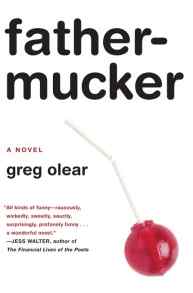 Synopsis:
Synopsis:
Josh Lansky is a screenwriter with a serious case of writer’s block. Although he optioned one script a few years ago, netting enough capital to flee New York City and purchase a home in suburban New Paltz, the movie was never produced and the script is presumably languishing on a studio shelf in Hollywood. Since then, he has been a stay-at-home father to Roland, age five, and three-year-old Maude while wife Stacy works in marketing at IBM. Josh has begun seeking freelance work and hopes to interview a rock star whose daughter attends the same preschool as Roland.
At the story opens, Josh has already slogged through the morning rituals associated with getting Roland, an “Aspie” (child with Asperger’s Syndrome), to school before taking Maude to a play date. The mothers of the other children are an eclectic group, but one in particular, Sharon, confronts Josh over coffee. Stacy is in Los Angeles for the week on business and Josh is already stressed out from having full responsibility for Roland and Maude, and missing Stacy. Sharon announces that she believes Stacy is having an affair, but has no time to explain her rationale due to the children’s demands, leaving Josh to wonder whether there could possibly be any merit to Stacy’s theory.
As the rest of a very long day of parenting unfolds, Josh ponders the state of his floundering career, as well as a marriage that has stagnated under the weight of domesticity and the pressures of caring for two young children, one of whom has special needs.
Review:

Author Greg Olear takes readers on a fascinating and often hilarious journey into Josh’s psyche as he contemplates the possibilities while juggling his various responsibilities. From a school field trip that is cut short when Roland has a complete meltdown to Josh’s interaction with an unsympathetic traffic cop to his chance meeting with the rock star with whom he hopes to snag an interview to his interactions with their incompetent babysitter who has an exaggerated sense of her own worth and sense of entitlement to a pay raise, just reading about Josh’s day invokes reader exhaustion along with empathy for Olear’s protagonist. Josh is a bright, but largely hapless guy in the true sense of the word. He loves his family, but knows that Stacy’s observation about the state of their marriage is accurate. Josh hopes Sharon is mistaken, but can’t help writing a series of screenplays in his mind in which Stacy is unfaithful to him, even though he also fantasizes about some of the mothers of his children’s playmates as he gossips with them about other members of the group.
Olear admirably tackles the issue of Asperger’s Syndrome, providing a timeline of the discovery of and research into the condition juxtaposed against Josh and Stacy’s own observations of Roland’s development and search for answers. Olear also illustrates the various ways in which Josh manages Roland’s behavior, largely through structure and tested routines, while painting a realistic and heart-tugging portrait of an extremely bright little boy who loves to look at books about home floor plans and architecture, and listen to the “States mix” in the car — a CD compilation of songs such as “Hotel California” that mention the various states.
The story bogs down in the middle as Josh’s stream of consciousness, tangential ramblings become tedious, his insecurities about his marriage verge on whining, and it seems doubtful that the book’s plot is going to reach a dramatic climax and subsequent resolution. Just when readers might be tempted to give up and quit reading, Olear offers up a plot twist that will instead having them reading furiously to the end. Because in actuality, Olear very cleverly invokes empathy for Josh who, despite his flaws, is endearing, as are Roland and Maude. The only character who remains a question mark until the very end is Stacy — aside from a few brief telephone conversations and messages, readers get acquainted with Stacy only through Josh’s descriptions of her and recitation of their relationship history. The desire to find out if Josh’s depictions are accurate keeps readers guessing — and reading.
father-mucker is a smart, witty exploration of one day in the life of a harried father and husband who, like all of us, loses sight from time to time of what is most important. Full of pop culture references (Josh checks his Facebook account every morning, and opines about celebrity couples and the deplorable state of rock and roll radio, for instance), father-mucker explores issues with which readers can readily relate while providing plenty of humor balanced with an unexpected but refreshing poignancy and complexity. father-mucker packs a surprising emotional punch and, perhaps, that’s Olear’s point. Life often surprises us, just when we think we may drown in the mundane details of domesticity and parenting. Readers who stick with father-mucker to the very last page will be glad they did.
Click here to read Greg Olear’s guest post, That’s Not What Friends Are For.



2 Comments
Hi Janie…Wanted to stop by to wish you a wonderful Holiday; hope it means special time with family and friends.
So glad you liked it! Thanks for being on the tour.